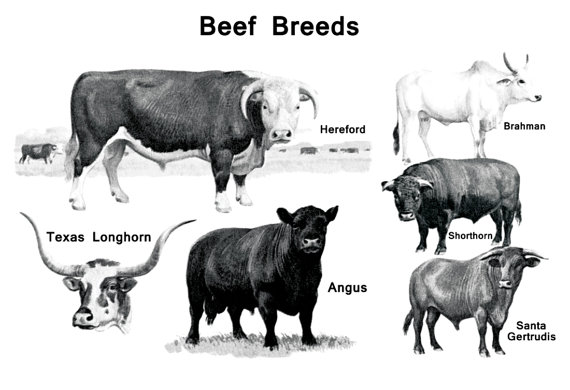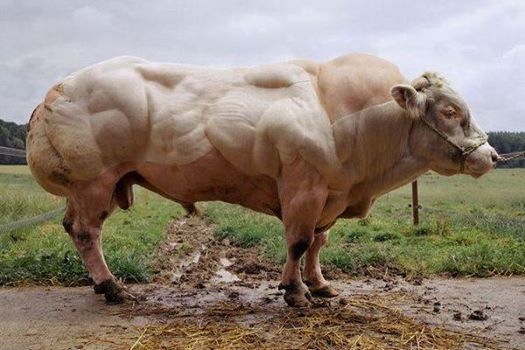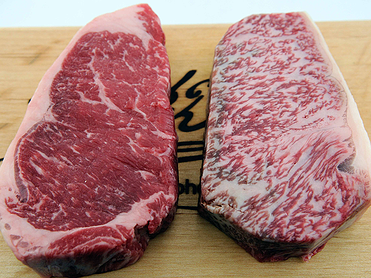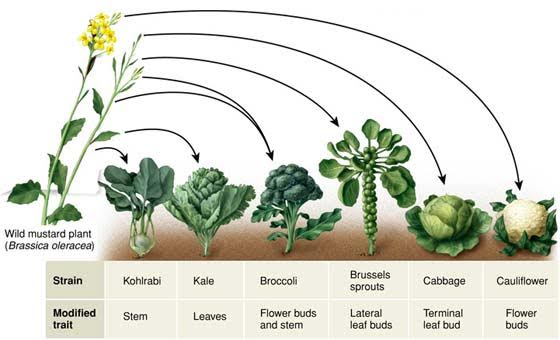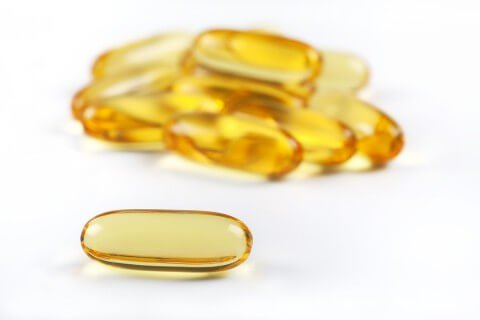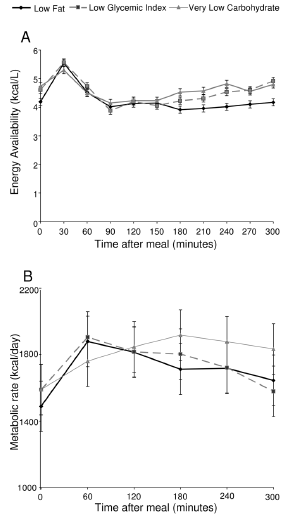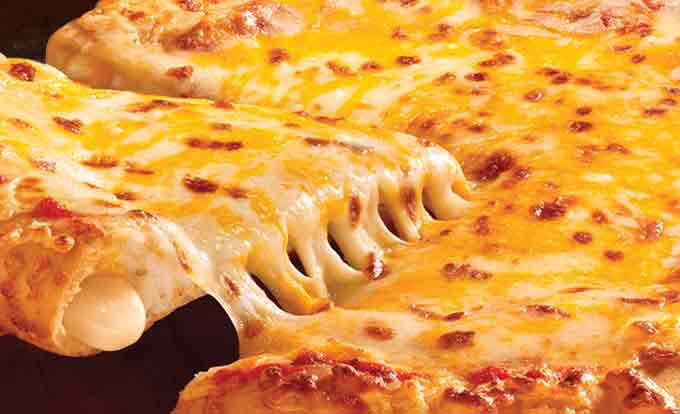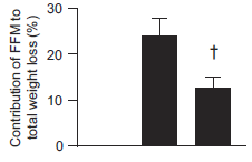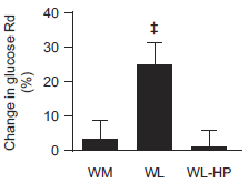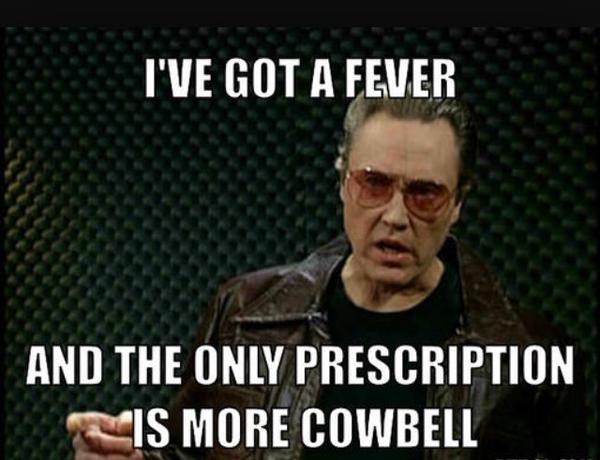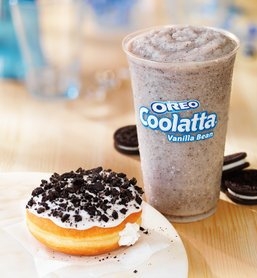There are many different types of beef cattle which have been selectively bred for specific qualities or properties.
A lot of info here, “Knowing It: Beef Cattle”
Scottish Angus x Longhorn = Black Angus. Apparently, Longhorn beef was unpleasant and tough but they bred well. Scottish Angus beef was tender but they didn’t breed well. Cross ’em and problems solved.
Hereford cattle are inexpensive and were bred for feed efficiency.
Piedmontese cattle are double-muscled and less marbled than Angus, and they’re often crossed because it’s hard to give birth to a fully double-muscled babe. Seems like it would help if momma was the Piedmontese, too.
Wagyu: main breeds are Japanese Black, Japanese Red, Kobi, and Sandai. Allegedly fed beer and given regular massages LOL
Angus vs. Wagyu: look at that marbling –>
More info from American Cowboy and Steak Perfection. And a comprehensive list of breeds here.
Needless to say, we aren’t eating the same animals as our ancestors: all of this selective breeding… it’s kind-of-like GMO. Also, we would’ve been domesticating the slow and less intelligent animals because the fast and smart ones would’ve gotten away. I’m not saying this is a bad thing, just that it’s not what the hunters were a’huntin way back when.
If an animal has been bred for a trait that increases growth hormone (GH); is it really that different from an animal treated with GH to induce that trait? [rhetorical]
Same goes for plants. Check out this awesome infographic:
Thank you for all you’ve given us, Wild Mustard Plant.
That’s all for now!
If you like what I do and want to support it, head over to Patreon! Five bucks a month gets you full access and there are many other options.
Consults are open, contact me if you’re interested: drlagakos@gmail.com
Affiliate links: join Binance and get some cryptoassets or download Honeyminer and get some Bitcoins for free! And now you can mine Bitcoin from your Chromebook!
Still looking for a pair of hot blue blockers? Carbonshade and TrueDark are offering 15% off with the coupon code LAGAKOS and Spectra479 is offering 15% off HERE. If you have no idea what I’m talking about, read this then this.
20% off some delish stocks and broths from Kettle and Fire HERE.
If you want the benefits of ‘shrooms but don’t like eating them, Real Mushrooms makes great extracts. 10% off with coupon code LAGAKOS. I recommend Lion’s Mane for the brain and Reishi for everything else.
Join Earn.com with this link.
Start your OWN Patreon campaign!

